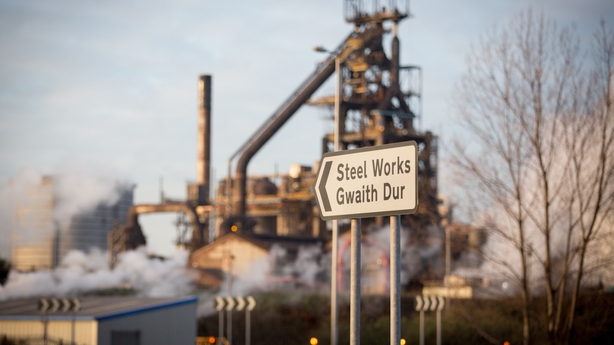Germany's Thyssenkrupp and India's Tata Steel agreed today to merge their European steel operations in a preliminary deal that would create the continent's second biggest steelmaker after ArcelorMittal.
The deal will not involve any cash, Tata Steel said.
It added that both groups would contribute debt and liabilities to achieve an equal shareholding and remain long-term investors.
The companies say they need to consolidate to address overcapacity in the European steel market, which faces cheap imports from China and elsewhere, subdued demand for construction and inefficient legacy plants.
"We want to avoid our steel team restructuring itself to death," Thyssenkrupp CEO Heinrich Hiesinger told reporters, noting its steel operations would face deeper restructuring needs if they remained part of the group.
"No one is able to solve the structural issues in Europe alone. We all suffer from overcapacity and that means that everyone is making the same restructuring efforts," Hiesinger said.
Thyssenkrupp shares rose 3.2%, boosted by hopes that the joint venture will also ease the burden on its balance sheet, which will be freed from €4 billion in mostly pension liabilities.
Tata Steel shares rose 1.7%.
Today's memorandum of understanding (MoU), widely expected after Thyssenkrupp last week said a deal could be reached this month, outlines annual synergies of €400-600m as well as up to 4,000 job cuts, or about 8% of the joint workforce.
The Essen, Germany-based group, whose operations span construction steel, car parts, submarines and materials distribution, is 15% owned by activist shareholder Cevian.
It had faced calls to split off other parts of the business, most notably its elevator unit.
Tata Steel Europe had been a strain on Tata Steel Ltd for a decade, causing the parent to burn cash at a rate of approximately $1 billion a year.
Pooling its operations with Thyssenkrupp would ease Tata Steel's debt burden, freeing up cash flow to allow it to invest to meet growing steel demand in India.
Tata Steel last month reached a landmark deal that will allow it to reduce £15 billion in UK pension liabilities, long seen as the main hurdle in talks between the companies, which have lasted more than a year and a half.
The new joint venture, to be named Thyssenkrupp Tata Steel, will be headquartered in Amsterdam, the companies said in statements after signing their MoU.
The UK government and unions said they welcomed the merger so long as commitments made by Tata Steel UK to safeguard jobs and extend blast furnace operations at Britain's largest steelworks in Port Talbot, Wales, were maintained.

Tata made commitments to safeguard jobs and invest in the Port Talbot steelworks in return for the unions agreeing to close their final salary pension scheme to future accrual.
The MoU will be followed by negotiations about the details of the transactions as well as due diligence before a joint venture contract can be signed at the beginning of 2018, Thyssenkrupp said.
Negotiations with German unions, who have campaigned against the plans and only this week signalled a willingness to consider them, are expected to be tough and tied to far-reaching job and plant guarantees.
The deal will require the approval from Thyssenkrupp's supervisory board, Tata Steel's board of directors and the European Commission.

